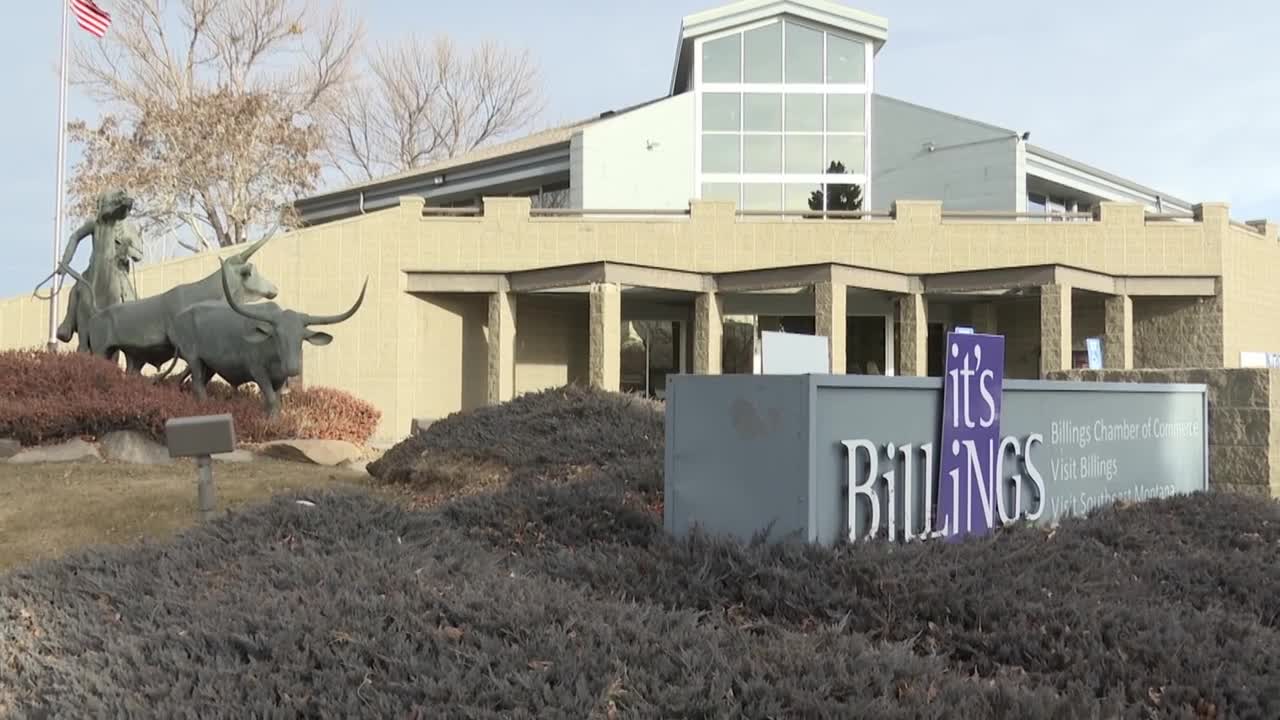BILLINGS - The Legislature is in full swing in Helena, and the Billings Chamber of Commerce will be watching closely.
The chamber released its priorities for the 2023 session, a top three list focused on workforce issues, public safety and tax reform.
“Many of them are focused on being friendly to business,” said Jack Jennaway, the chamber’s business advocacy coordinator.
Jennaway says public safety is on the minds of Billings residents, considering the passage of a $7 million public safety levy in 2021 and a recent rash of crime, but it's not the top priority for the session.
“Workforce issues actually eclipsed public safety, as the number one concern of the business community,” said Jennaway. “Which tells you how severe or the lack of workforce in buildings really is.”
A recent chamber study estimates that four of the top five occupations in Billings—which include about 36,000 people—don’t pay enough to afford a median-priced home.
Jennaway says the chamber will be putting its support behind changing housing regulations because those challenges go hand in hand with workforce shortages.
“We can't turn down any housing projects that come our way. We have to build as much housing as possible,” said Jennaway. “Overly burdensome regulations, particularly land-use regulations, make it harder to build housing.”
It’s something Ron Yates with Eide Bailly knows all too well. Their only Montana accounting firm, based in Billings, has been looking for quality employees for some time.
“We sell services, so we need to have clients and we need to have employees,” said Yates. “The pipeline is not full enough to fill all of our positions.”
And as a member of the Billings Chamber of Commerce, Yates says the firm hopes a little pressure on lawmakers in Helena could help.
Yates says Eide Bailly usually has a direct pipeline of employees from the state’s colleges and universities. But recently, the firm has been trying to attract future workers to Billings from out of state, which brings about another problem: crime.
“Attracting people to work in Billings from elsewhere right now has its challenges too,” said Yates. “And rising crime in Billings doesn’t help.”
The chamber says the state currently pays less than the actual cost of housing state inmates at local detention facilities, which leaves Yellowstone County taxpayers to subsidize state inmates.
Repr. Kerri Seekins-Crowe, a Billings Republican, has a bill draft (HB 174) to address that. Another Billings Republican, Sen. Barry Usher, is sponsoring a bill (SB 94) to provide the necessary oversight to recovery residences.
Jennaway says the chamber's priorities weave together. The third issue is a look at tax reform, which he says will trickle down to provide benefits to Billings businesses.
The Billings chamber says it supports Gov. Greg Gianforte's proposals to increase the Business Equipment Tax exemption and decrease the top marginal income tax rate. Both will provide significant benefits to area businesses.
Those with the chamber also say Yellowstone County has 502 entities with business equipment tax liability in the tax year 2022.
Raising the exemption threshold to $1 million would fully exempt 273 entities, reduce liabilities for the remaining 229, and provide a total savings of $1.293 million to businesses in Yellowstone County.
But back at Eide Bailly, where the cubicles need to be filled, Yates says all of these would help in attracting workers into the firm.
“We would really like to fill our positions,” he said.
The chamber, together with Montana State University Billings, will be hosting bi-weekly videoconferences to provide citizens with opportunities to engage with local legislators.
Click here to learn more about the Chamber’s legislative efforts or to attend a videoconference.
One priority that has dropped off the chamber's list: a local-option sales tax. The Billings chamber had been one of the largest advocates for the measure for more than a decade, albeit with little success.
The local-option tax would grant cities in all of Montana the authority to ask voters to approve a sales tax within city limits, which would pay for roads, sidewalks and other public projects.





